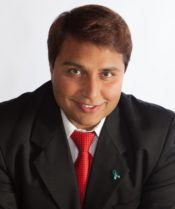Dr. Patrick Pulliam, a Stockbridge pediatrician, moved to a new, bigger medical office last year.

The new site is in the same town as the old one, and in fact the two locations are only a half-mile apart. But the switch is costing Pulliam money. He’s getting paid substantially less to treat Medicaid patients in the new office.
“It’s bizarre,’’ says Pulliam, who has been practicing 20 years. “I’m frustrated and concerned.’’
The pay differential involves a situation that has bedeviled an unknown number of Georgia physicians for some time.
The roots of the problem date back a few years, when the Affordable Care Act raised the pay rates nationwide for primary care doctors treating Medicaid patients.
To get the pay bump, physicians had to “attest’’ in the years 2013 and 2014 that they practiced in pediatrics, family medicine or internal medicine and were board-certified. The reimbursement boost was funded entirely with federal dollars.

The ACA pay hikes were phased out at the end of 2014.
Starting in 2015, the Georgia Medicaid program, with state funding, restored higher pay rates for some medical visit codes, then added more the following year. But if doctors had not attested during 2013 and 2014, they couldn’t get the pay bump.
And location matters. If doctors move to another city, or simply work in different offices from where they “attested,’’ they can’t get the added pay in the new location.
The state Legislature agreed last year to fix the problem, telling Georgia’s Medicaid agency to spend existing funds to eliminate the pay gap, beginning last July.
That hasn’t happened, doctors say. Groups representing physicians have met with officials of the Georgia Department of Community Health, as has state Sen. Dean Burke, a Bainbridge Republican who’s also a physician.
“I’m concerned about the problems with attestation from a fairness perspective,’’ Burke told GHN on Thursday.

DCH leadership, Burke added, “has committed to working through the issue as quickly as possible and let me know what their budgetary needs are, if there are any.”
The agency last year told GHN that there were budgetary constraints working against a solution to the pay differential.
On Thursday, Community Health acknowledged the legislative budget last year called for a new period of attestation. But the agency did not respond to a question on why the problem hasn’t yet been addressed.
A frustrating problem
“Anyone can see it’s unfair and needs to be changed,’’ Dr. Raj Miniyar, a Rome pediatrician, said Wednesday.
Miniyar opened a new practice in nearby Trion in 2016.

That office became the only pediatric practice in Trion, in the center of a rural county in northwest Georgia where 28 percent of children live in poverty.
But the attestation issue has hit home for him.
Miniyar told GHN last year that when he sees a Medicaid patient for an ear infection in Trion, the government insurance program pays him roughly $40. But if he sees a child covered by Medicaid for the same ailment at his Rome practice, he’ll be paid about $70.
He serves mostly kids on Medicaid and PeachCare, programs that often struggle to attract physicians to serve patients because of the low reimbursement.
Medicaid covers roughly 2 million Georgians, most of them children.
The current policy could discourage doctors from practicing in rural areas, says family physician Dr. Rick Wherry. He works in a state-designated rural health clinic in Dahlonega.
Wherry has not gone through attestation, and now fears a switch in that clinic designation – or a move by him to a different area – would lead to a 40 percent pay cut for treating Medicaid patents.
“Do we want to start losing [doctors] in rural areas?’’ Wherry says.
The pay gap also affects doctor recruitment.
Dr. Alan Getts says a recently hired pediatrician in his Augusta-area practice is being paid the lower, older reimbursement, while the other four pediatricians get the higher amount. Where the new pediatrician works, the patients are 75 percent Medicaid.
Doctors have been told the state doesn’t have the money to address the situation, Getts says.
“I’m totally befuddled that’s the answer we get.”

